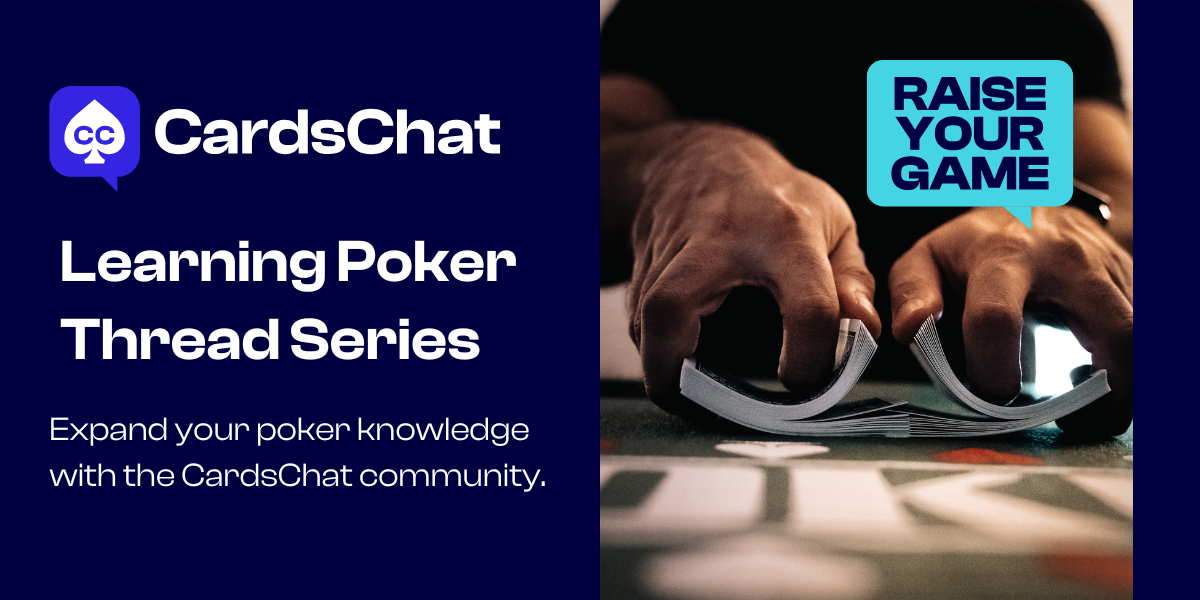CRStals
Moderator
Moderator
The goal for any serious tournament poker player is simple: reach the final table. Most of us experience the rush of getting to that stage, but the real challenge begins once you're there. So how do you shift gears from navigating the early stages and bubble to seizing victory at the final table? In this article, we’ll break down the key strategies you need to finish strong, claim the trophy, and take home the top prize. Ready? Let’s dive in!

🚨 Missed a Part of the Series? Catch Up Here:
- Blind vs Blind Poker Strategy: Mastering the Most Awkward Spot at the Table
- Big Blind Strategy in Poker: How to Defend Smarter and Lose Less
- How and Why to Widen Your Poker Ranges in Late Position: Strategy, Risks, and Adjustments
- Part 4: Out of Position Post-Flop Poker Strategy: How to Win Without Position
- Poker Bubble Strategy – How to Play for the Win, Not Just the Min-Cash
- Mastering Final Table Strategies - Part 1 of 2
💥 Understanding ICM (Independent Chip Model) and How It Affects Final Table Dynamics
What Is ICM?
ICM is a model that calculates the real dollar value of a player’s chips at the final table, taking into account the remaining prize pool. This model helps players understand that chips are not always worth the same amount as their face value at the table. Here’s what you need to know:- ChipEV (Expected Value in Chips): The long-term expected change in your chip stack for any decision you make.
- $EV (Expected Value in Dollars): The long-term expected profit or loss from a decision in terms of real money.
ICM in Action:
- Big Stacks: Use your position to apply pressure on medium stacks. They're feeling the most pressure to avoid elimination, so steal their blinds or target them for small pots.
- Medium Stacks: The most vulnerable position at the table. Play tight against short stacks but aggressive against larger stacks with premium hands.
- Short Stacks: Freerolling with little to lose. Play back at medium stacks when possible, as they’ll likely avoid risky calls.
💥 To Deal or Not to Deal?
At the final table, the question of making a deal often arises. But should you? It depends on your position and the situation at hand.When to Consider a Deal:
- Big vs Small Stacks: Big stacks are generally looking for the win and won’t want to deal. Small stacks have little to gain by chopping up the prize pool. It’s the medium stacks that feel the most pressure and may be inclined to make a deal.
- Turbo Tournaments: Deals in turbo or hyper tournaments can reduce variance, ensuring you lock up a guaranteed payout rather than risking a bad beat.
- Skill of Opponents: If you’re up against skilled middle-position players, a deal might be beneficial to reduce the risk of them outplaying you.
When NOT to Deal:
- You Want the Win: If you’ve come this far, playing for the top prize may be your primary goal.
- Profit Line: If you’re close to breaking even or need a specific finish to make the tournament profitable, a deal may not make sense.
- Momentum: If you’re on a roll and feel confident, taking a deal could take away your edge.
💥 What to Avoid at the Final Table
The final table is the hardest part of the tournament, and making the wrong decision can cost you the win. Here are some traps to avoid:- Over-Bluffing: Don’t try to make a big bluff just for the sake of it. Set up your bluffs carefully and control the pot size to minimize the risk of losing a big hand.
- Playing Too Tight: You can’t fold your way to the top. Be ready to take risks, especially when others at the table are targeting you for being passive.
- Letting Emotions Drive Your Play: Stay focused and avoid emotional decisions. Stick to your strategy and play logically.
- Being Passive: Don’t just call; raise and 3-bet more frequently. Passive play won’t get you to the top.
- Ignoring Changing Dynamics: As players get eliminated, chip stacks shift and table dynamics change. Adjust your strategy after every hand to stay in the game.
🎯 Final Thoughts: Winning the Final Table
Playing at the final table is both thrilling and challenging. To secure the win:- Big Stacks: Be aggressive and apply pressure.
- Medium Stacks: Play cautiously, avoiding confrontations with the short stacks, but get aggressive with bigger stacks.
- Short Stacks: Look for spots to double up and increase your stack.
- Adapt to Changing Dynamics: Always adjust your strategy based on the shifting chip stacks and player eliminations.
💬 How Do You Tackle the Final Table?
What’s your strategy for closing out a tournament at the final table? Share your insights in the comments and join the discussion!









